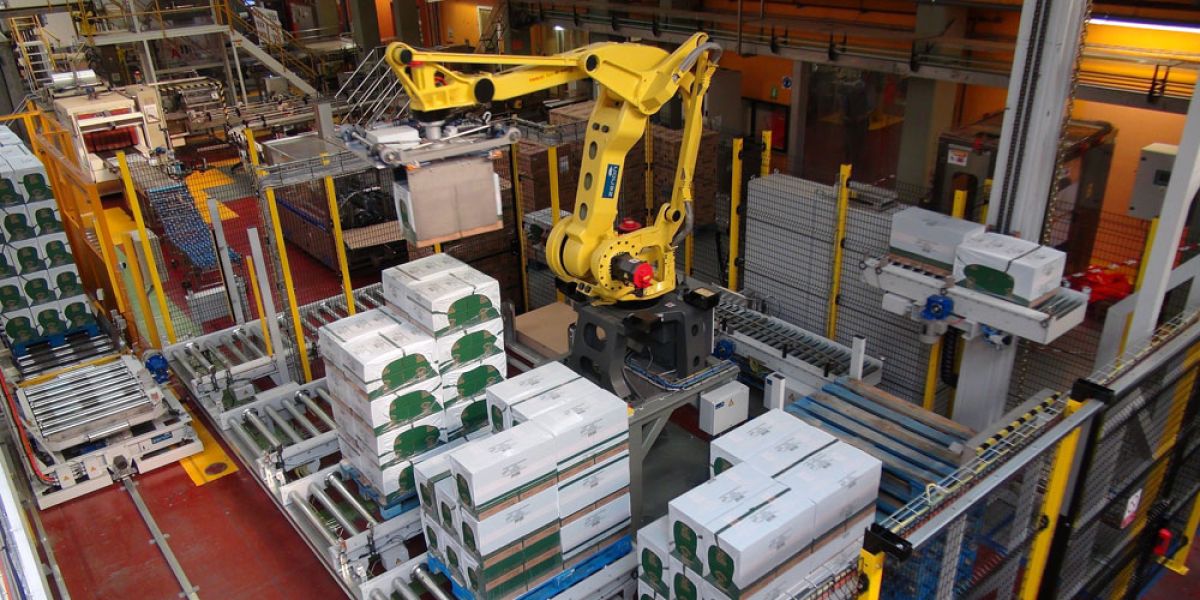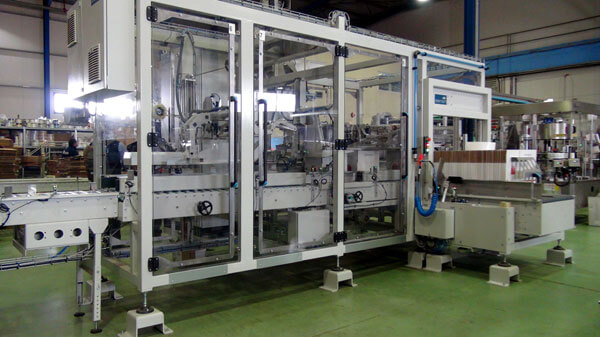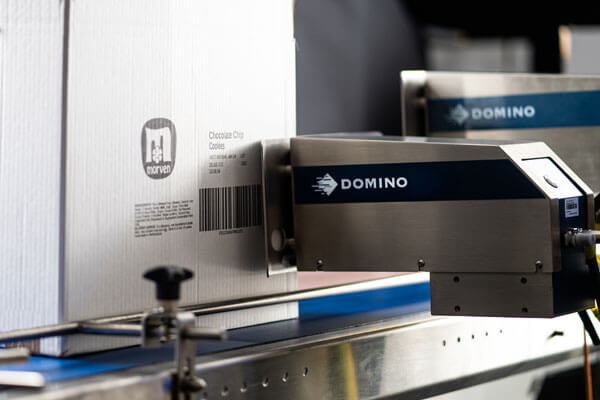The Industry 4.0 Applications

Dr. Evangelos Theodorou,
Theodorou Group Chairman & CEO
It is a fact that there is a lot of information about the new industrial revolution and the technologies that support it. Knowledge of these technologies is essential for industry executives who are responsible for developing strategies for integrating digital transformation into their business. The question, of course, is how technologies lead to applications that provide real solutions to the problems facing the industry.
In this article we present the current and usable applications of Industry 4.0.
Robotic Palletizing
This is the most common application of industrial robots. More and more industries are using robotic palletizing systems, as the availability of standardized systems has led to significant cost reductions. An important development is the use of smaller collaborative robots (cobots) in simpler palletizing applications. In the most “difficult” applications, the higher speeds of the robots allow the service of multiple production lines by a palletizing robot, which leads to a further reduction of costs.
Robotic Case Packing
Automated case packing with the use of specialized robots and / or cobots is now a current technology for the industry. Modern automatic case packing systems can cover a wide variety of different products, fast switching from one product to another, easy integration in any packaging environment, automatic entry / exit of products / cases and meeting all safety standards. One of the key features of automatic case packing systems is the fast payback time of the investment.

Smart Machine
Although many machines do not resemble classic robots, we can give them the necessary “intelligence” to acquire the qualities of a robot.
This intelligence is the ability to exchange data, related to the operation of the machine, in real time. It is obvious that smart machines can be more easily integrated into a digital production environment. This is the new approach to industrial robotics, which covers not only machines that include propulsion but also all other production equipment.
In addition to the classic industrial automation technologies (PLC’s, SCADA, etc.), intelligent sensor technologies and Industrial Internet of Things (IIoT) are widely used in smart machines.
The Connected Factory
These are applications of advanced Manufacturing Execution (MES) systems, which have the ability to interface with production machines and in parallel with other business management systems (ERP, WMS, quality control, etc.). Data is processed in real time and is enabled for synchronization of sales with production, drastic increase of productivity, immediate intervention in case of error, better management of production orders, more complete exploitation of raw materials, etc.
Complete Traceability
Traceability is directly related to the safety of consumer products (food, beverages, medicines, cosmetics, etc.).
A basic condition for achieving complete traceability is the automatic collection of reliable data at all stages of the production process, from the raw materials to the final product. In addition to traceability in the production process (internal traceability), traceability in the supply chain (sequential traceability) is also important, which ensures that the product will reach the right condition to the final consumer.
The new technologies of Industry 4.0 that can be used for traceability, are the connected encoding systems, the serialization technologies & aggregation with 2-dimensional codes (dot codes, matrix codes, etc.), IoT technologies, the interconnection of production machines, advanced MES, the monitoring of products with cameras, advanced technologies, etc.
In fact, traceability presupposes most of the applications of industrial digital transformation already described above.

Applications of technologies for the benefit of businesses
In more than 40 years of continuous activity, and with thousands of successful applications in all sectors of industry and supply chain in Greece and abroad, Theodorou Group consistently offers innovative solutions to companies within the above applications of Industry 4.0. With continuous investment in specialized staff, infrastructure, reliable products, but also in the deep knowledge of the subject, Theodorou Group emphasizes on Technical Support and the essential contribution to the development and improvement of its customers.
And a look at the future
An industrial production management system of the future will be based on a single digital platform that will automatically control production processes according to business requirements. The production machines will follow a modular plug & play logic. Finally, most – if not all – of the manual work will be outsourced to machines and the human resources will be upgraded and managed activities that require complex mental skills and which are difficult – if not impossible – to be outsourced to “mechanical” systems.
 Dr. Evangelos Theodorou is the President & CEO of Theodorou Group. He holds a degree in Electrical and Mechanical Engineering – NTUA (National Technical University of Athens) and holds a Ph.D. in Electronic Systems from the University of Cambridge, England. He has been a lecturer at the Department of Electrical and Mechanical Engineers of the NTUA.
Dr. Evangelos Theodorou is the President & CEO of Theodorou Group. He holds a degree in Electrical and Mechanical Engineering – NTUA (National Technical University of Athens) and holds a Ph.D. in Electronic Systems from the University of Cambridge, England. He has been a lecturer at the Department of Electrical and Mechanical Engineers of the NTUA.


